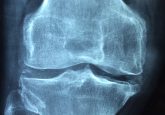Urine test shows potential in prediction of premature birth and delivery of small babies

Researchers from Imperial College London (London, UK) and the University of Crete (Crete, Greece) recently published a study in which they investigated levels of certain urinary metabolites in early pregnancy.
They were able to identify patterns and link them to a range of birth outcomes associated with increased chances of developing metabolic and cardiovascular disorders later in life.
The team studied urine samples from 438 pregnant women in the Rhea cohort – a large population case-control mother-child study that started in Crete in 2007. Of the metabolites analyzed, they found that elevated lysine levels were associated with spontaneous premature birth.
In addition, women who had to be induced early tended to have increased levels of N-acetylated glycoprotein. Their findings also outline how decreased levels of acetate, formate, tyrosine and trimethylamine appeared to be linked to poor fetal development.
Hector Keun, lead researcher from the Department of Surgery and Cancer at Imperial College London, stated, “Our findings imply that it could be possible to improve the identification of women at higher risk of delivering smaller babies or preterm delivery using non-invasive metabolic profiling technology early in pregnancy.”
The researchers hope to further investigate these metabolites and determine whether their different levels are induced by pregnancy or indicate an underlying risk factor. It is hoped that gaining a greater understanding of this will help reduce the likelihood of these events.
Hector added, “We will also go on to test if exposure to these metabolites during pregnancy has a lasting impact on child development after birth.”
Source: Urine test could predict preterm birth and delivery of small babies; Léa Maitre, Eleni Fthenou, Toby Athersuch et al. Urinary metabolic profiles in early pregnancy are associated with preterm birth and fetal growth restriction in the Rhea mother–child cohort study. BMC Med. 12:110 (2014).





